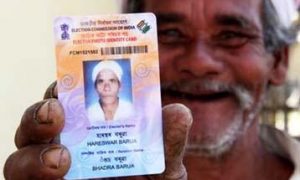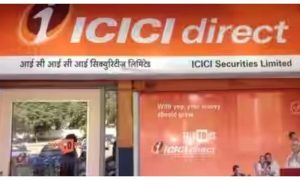Apart from several investment tools such as ELSS, PPF, Sukanya Samriddhi Yojana, interest on home loan and donations can also help save taxes
Read More: How To Check Income Tax Refund Status Online | Step-by-Step Guide
NEW DELHI: As the financial year nears its end, it is crucial to take a look at your tax saving investments and expenses so as to ensure you don’t end up paying higher taxes. The Income Tax Act offers various avenues for deductions under Section 80C, including investments like PPF, NSC, Sukanya Samriddhi Yojana, 5-year FD, ELSS, and life insurance policies. Additionally, contributions to the National Pension System (NPS) provide further deductions under Section 80CCD(1b).
In this article, we will explore these investment options and guide you on making well-informed choices to optimise your tax-saving potential in the final three months of the year. But before going ahead, taxpayers should know that these deductions are allowed only if you have opted for the old tax regime. Under the new tax regime, there are no deduction benefits available.
To claim deductions under Section 80C, it is important to opt for the Old Tax Regime, says Pankaj Mathpal, Founder, Optima Money Managers. By doing so, you become eligible for a range of investment options that can significantly reduce your taxable income.
Tax-saving options under section 80 C
Under Section 80 C of the Income Tax Act, one can get deduction benefit up to R1.5 lakh per year.
Term Life Insurance: If you have dependents relying on your financial support, considering a Term Life Insurance policy is essential. In addition to providing financial security to your loved ones in the event of an unfortunate incident, premiums paid towards such policies are eligible for deductions under Section 80C.
ELSS: Equity Linked Savings Scheme (ELSS) is an ideal choice for those looking to create wealth while saving on taxes. As an open-ended mutual fund, ELSS offers the potential for higher returns through exposure to the equity markets. However, it is important to note that ELSS has a lock-in period of 3 years, as per Mathpal.
Read More: What Is Income Tax Dept’s ‘Discard ITR’ Facility? Explained In 8 Key Points
While this lock-in period is relatively short compared to other investment schemes eligible under Section 80C, it is advisable to consider ELSS only if you have a long-term investment horizon, as equity markets can be volatile in the short term, he added.
Sukanya Samriddhi Yojana – Sukanya Samriddhi Yojana is a government-backed savings scheme designed to secure the future of girl children. Opening an account under this scheme not only offers tax benefits on investments but also provides tax-free interest. Parents can contribute to this account until their child turns 15, and the accumulated corpus can be utilized for her higher education or marriage expenses.
Public Provident Fund (PPF) – Another popular investment option eligible under Section 80C is the Public Provident Fund (PPF). With a maturity period of 15 years, PPF offers a secure and tax-efficient means of saving for the long term.
The returns earned on PPF investments are tax-free, making it an attractive option for risk-averse investors. Moreover, PPF accounts can be extended indefinitely in blocks of 5 years after maturity. By making regular contributions to PPF, individuals can not only enjoy tax benefits but also
build a substantial corpus over time.
Additional tax-saving under NPS
National Pension System (NPS) – Contributing to the National Pension System (NPS) allows individuals to claim additional deductions under Section 80CCD(1b). This deduction is over and above the limit prescribed under Section 80C. By investing in NPS, individuals can secure their retirement and enjoy tax benefits simultaneously. With a maximum deduction of R50,000 per financial year, NPS provides an excellent opportunity to plan for a financially stable future.
Contribution towards health insurance
In addition, as per Ankur Kapur, any medical insurance premium for self or parents can avail tax benefit of up to R 75,000 under section 80D of the income tax act.
Read More: Will non-furnishing of income tax return lead to prosecution?
Expenses allowed
Apart from tax saving investments, some of the expenses are also allowed to be deducted from the gross income to arrive at the taxable income. Some of those expenses are part of Section 80 C deductions limit of R 1.5 lakh, one can claim deduction benefits up to R2 lakh on interest paid toward home loan.Expenses incurred for medical treatment of self or a dependent with disability are also eligible for deductions. A maximum expense of R1.25 lakh is deductible if the disability is severe. Donations to certain funds or trusts are also eligible for up to 100% deductions.
By considering all the above options one can drastically reduce the tax liability, but do seek advice from financial experts to avail these benefits.





































